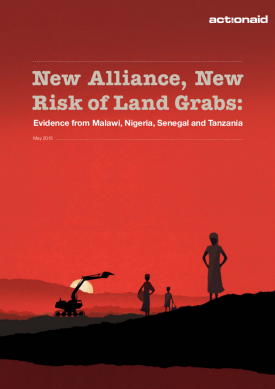2011 Politiques alimentaires mondiales rapport
Depuis 2007, deux séries successives d’envolée des prix des denrées alimentaires ont causé la faim ou la malnutrition pour des millions de personnes dans le monde. Les mêmes facteurs qui avaient contribué à la hausse des prix en 2007-2008 ont refait surface en 2011 et ont pour nom : la baisse du taux de croissance de la productivité agricole, le niveau élevé du coût de l’énergie favorisant l’expansion de la production de biocarburants, la dépréciation du dollar américain, une forte demande des pays émergents en matière de produits agricoles et les bouleversements climatiques.









